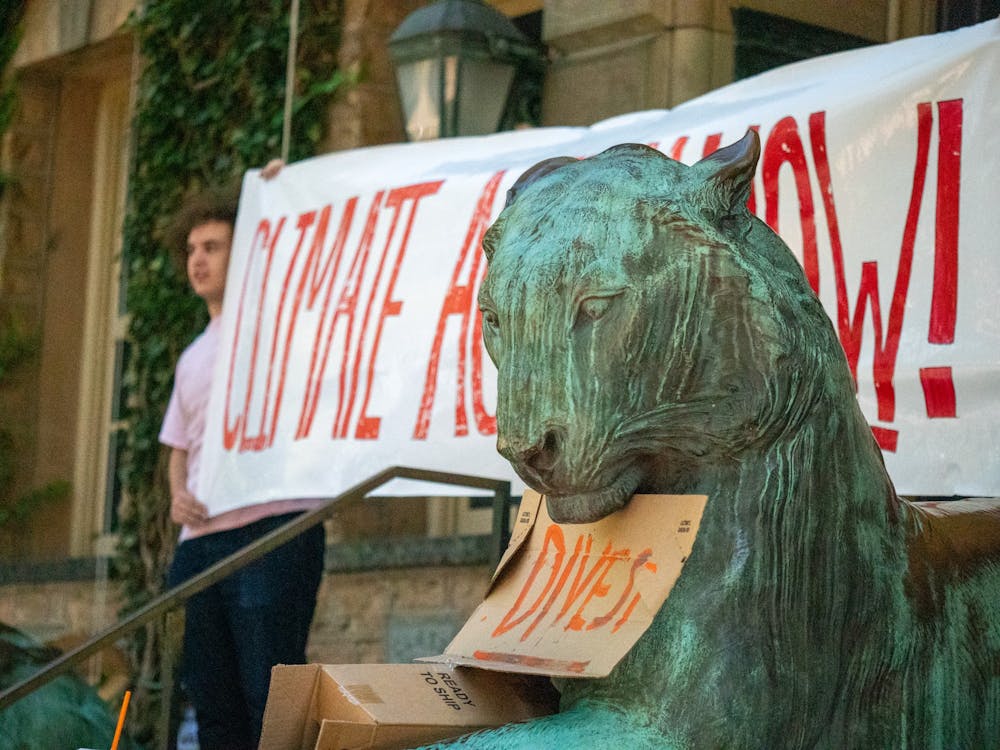In a college setting as rigorous as Princeton’s, to what extent is it socially acceptable for students to talk about the concept of “struggle”? We often hear our friends grieve over tricky problem sets and ridiculous amounts of reading, and it’s certainly not uncommon to hear someone in the dining hall talk about how his or her recent experience with grade deflation was a slap in the face. However, we rarely hear a student seriously discuss his or her struggle with college as a whole beyond the context of a single class, grade or exam — whether the issue lies with emotional and psychological well-being or with academic difficulty. For students who have been so encouraged to be different — unique in our talents, our achievements, our backgrounds and interests — there seems to be such a strict mentality that we all follow a certain pathway that the American education system demands of us. This pathway seems to condemn the student who makes the brave decision to take time off to reflect and recharge before college, and who can make the courageous admission that he needs a break. So what exactly is this mindset that restricts us from doing what is best for us and prevents us from understanding that each of us runs at a different pace?
After talking to many of the international students on campus, I realized that there is an alternative to this rigid schedule of high school, undergraduate college, graduate or professional school, then job that the American education system seems to hold in such high regard. For students from other countries, it’s not uncommon to take a gap year abroad to gain experience or work to help pay tuition fees before embarking on undergraduate studies. What’s more is that this decision isn’t viewed negatively — it’s neither a reflection of the individual against his peers nor is it a statement about the student’s likelihood for success.
I spoke with five Princeton students who withdrew from the University for a year about how their unique experiences ended up changing the discourse with which they discussed and approached the idea of success and struggle on campus. For many of them, the problem started with this idea of the concrete endpoint. When we enter college, we’re ambushed with seemingly harmless questions such as “what’s your major?” This is when we might start to realize we don’t have a goal that fits in as smoothly as the goal of “getting into a good college” did in high school. While we might have been that put-together kid when we were younger, college brings up the daunting possibility that we no longer have a detailed battle plan that will get us to whatever end we’re hoping for. One student I talked to said, “I felt like I had to wear a mask because everyone expected me to have the right answer, and when I didn’t, I began to question what and how I was doing.” What no one ever really tries to instill in us is that, thus far, we have been given neither a sufficient amount of time nor guidance to decide what we want to do on the grand scale of life and that college is merely the first rung in this journey — not the whole ladder.
It’s okay to admit that maybe you’ve reached a time in your life when you have to take some time for yourself. We don’t all function according to some mechanism that the University or the American education system has dictated that we follow, and if we truly cannot handle the speed, there’s nothing wrong with us; it’s the environment in which we find ourselves struggling that needs to accommodate its exceptional students.
Scot Tasker ’16, whose inspirationally honest reason for temporarily withdrawing was that he felt “wildly unhappy” at Princeton, realized that many students struggled with terms such as “depressed.” It was too much of a psychiatric label for people to understand and empathize with. For some of the other interviewees, they didn’t feel comfortable talking about their problems to even their closest friends, going so far as to create a cover story that would be acceptable to others. Why should they have to make their reasoning accessible to anyone? Being at Princeton seems to require a perpetual proof of our merit, and, should we not be able to provide such a demonstration, we fear that others will associate things such as a failed grade with overall failure. This discourse needs to change. If it doesn’t, we eliminate any chance we have to actively seek out help or to experience an empathetic connection with our peers that lets us know we’re not alone. In Scot’s case, his experience taught him that “we often lose sight of the fact that we actually have the ability to understand what others are going through more than we give ourselves credit for.” This idea of success needs to change — not necessarily away from academic achievement, but toward a greater realization that college encompasses our emotional and social development as well as our scholarship.
Isabella Gomes is a sophomore from Irvine, Calif. She can be reached at igomes@princeton.edu.









